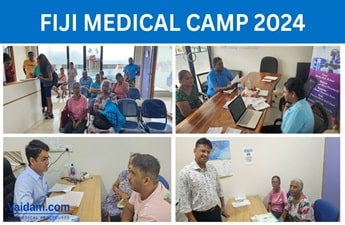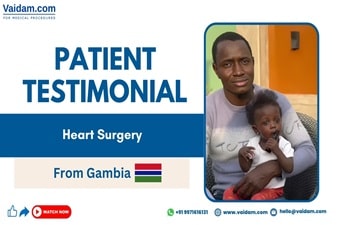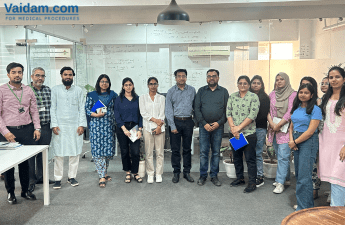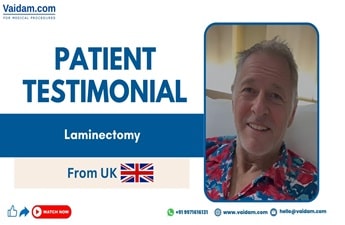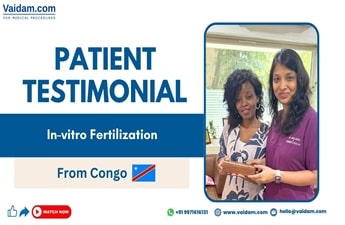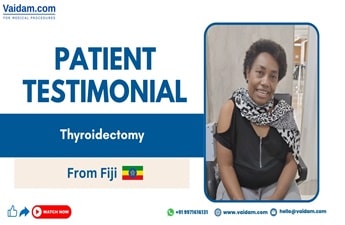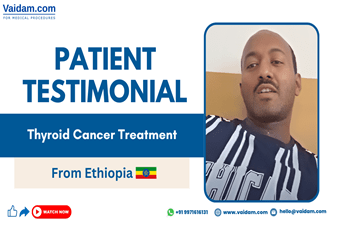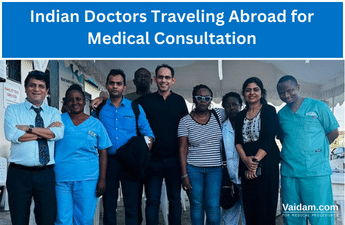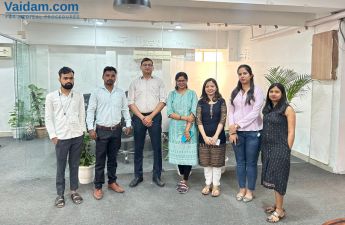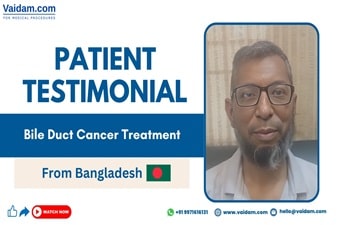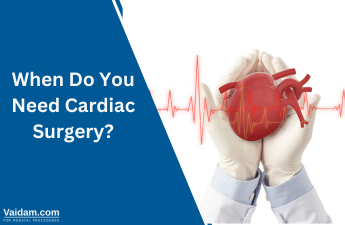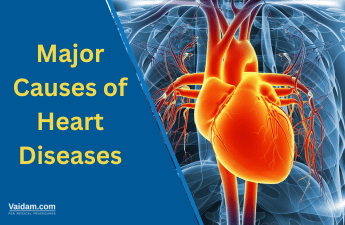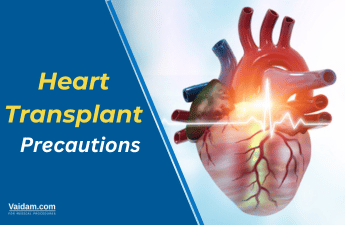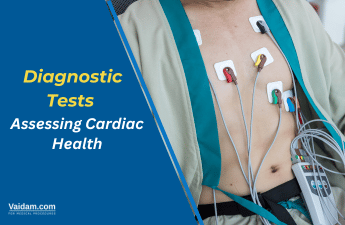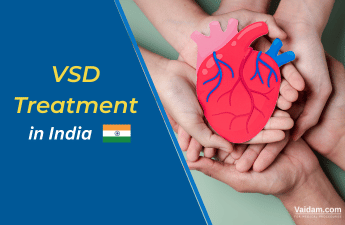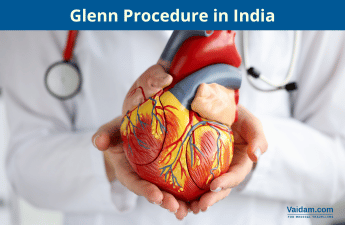
Did you know that the first open heart surgery was performed at the University Hospital, Kuala Lumpur in 1975 and then, at Kuala Lumpur Hospital in 1982?
Malaysia is one of the few countries with integrated medical centers such as the IJN Heart Institute and well-equipped JCI-accredited hospitals.
The heart is your body’s circulatory system and beats around 100,000 times per day. The problem arises when it doesn’t beat with this much regular frequency. There are chances when the heart disease may be silent and symptoms occur later like heart attack, failure, or arrhythmia.
When we talk about heart disease, then the most common type of heart disease is coronary artery disease other than stroke, aortic disease, and peripheral vascular disease.
In 2020, around 400,000 were dead because of coronary artery disease. Around 1 in 4 deaths happen due to heart disease and this condition can happen at any age or to all genders.
Heart Conditions That May Require Heart Surgery
Heart diseases occur when your cardiovascular system is affected. There are different types of heart diseases that affect the heart and blood vessels in different ways.
Following are the four common health reasons why heart surgery may become a necessity:
-
Blocked coronary artery: Coronary artery bypass grafting (CABG) is one of the common cardiac procedures to treat a blocked or diseased coronary artery. In this procedure, the surgeon extracts a healthy portion of the blood vessel from another part of the body and uses it to bypass the diseased vessel. Depending on the number of arteries that need to be operated on, this procedure is referred to as single, double, triple, or quadruple bypass.
-
Faulty Valve: The heart valves act like doors that open and close for the blood to flow from your heart to the body. These valves prevent the backward flow of blood. When the valve becomes narrowed or stops functioning properly, then a surgical procedure is conducted to repair or replace it. In case of valve replacements, your surgeon may use biological valves from animal tissue or man-made mechanical valves.
-
An aortic aneurysm: The aorta is the main artery in the body that carries oxygenated blood from your heart to the body. Sometimes, genetics or other health conditions may damage the aorta causing a balloon-like bulge or aortic aneurysm. This damaged part of the aorta needs to be replaced for further damage. To treat this condition, your surgeon may usually perform traditional open surgery. In some cases, a minimally invasive procedure may be appropriate.
-
Heart failure: Heart transplant surgery is the last and only option for treating heart failure. The surgeon performs a conventional surgical procedure in which he/she opens the heart, removes the diseased heart, and replaces it with a donor's heart. There are cases when the surgeon may perform a ventricular assist device (VAD) that requires implantation of a small mechanical pump to improve the blood pumping function until the donor’s heart is available.
Heart treatment: Types of heart surgeries

There are several approaches to heart surgery. Depending on your overall and heart’s condition, your surgeon may perform:
-
Open-heart surgery: It is a type of surgery in which the chest is cut open and the surgery is performed on damaged muscles, valves, arteries, and parts of the heart. Your breathing will be connected to a ventilator and heart-lung machine to perform the heart’s pumping action and remove the blood away from the heart so that the surgeon can operate.
-
Minimally invasive heart surgery: In this procedure, small incisions are made on the right side of the chest to reach the heart between the ribs. It is done to treat a variety of health conditions including aortic or mitral valve replacements, blocked arteries, etc. For this procedure, the surgeon evaluates whether you’re compatible or not.
-
Off-pump heart surgery: It is a type of coronary artery bypass graft surgery to restore blood flow to the coronary arteries. This procedure doesn’t require a heart-lung machine. The surgeon uses a tissue stabilization system to numb the part of the heart that needs to be operated on while the rest of the heart keeps functioning.
-
Robotic heart surgery: In this procedure, the surgeon makes small incisions in the chest to insert tiny instruments and robot-controlled tools to perform heart surgery. This procedure offers better precision, lesser incisions, and quicker recovery. This surgical approach can be used to treat a wide range of heart conditions such as cardiac tissue ablation, heart defect repair, tumor removal, etc.
-
Transcatheter heart surgery: In this procedure, the surgeon inserts a catheter into the leg or chest for accessing the heart. This procedure includes transcatheter aortic valve replacement (TAVR), repair of the mitral valve with Mitraclip, and/or repairment of defects in the heart.
Why Do People Choose Malaysia for Medical Treatment?
Malaysia is one such destination that has emerged as a global giant in the medical tourism industry. From 643,000 medical tourist travelers in 2011 to approximately 1.2 million travelers in 2018, medical tourism generated a huge business of USD 362 million in 2018 which was around USD 127 million in 2011. This seems to be a huge difference. Isn’t it?
Malaysia is carving a niche in cardiology treatment with over 33 heart treatment centers across the country including its internationally renowned National Heart Institute.
This institute is building its position in the Malaysian medical tourism market by integrating with other renowned medical centers across the globe including Royal Papworth Hospital in the UK, and the University of Australia, Adelaide.
Not only Malaysia is one of the leading tourist destinations for its ancient culture, historical monuments, ancient temples, intriguing history, and picturesque beauty, it is a well-recognized country in the world of the medical tourism industry.
In 2005, the government introduced the Malaysian Healthcare Travel Council (MHTC), an agency under the purview Ministry of Health, Malaysia. It facilitates and promotes the country’s healthcare travel industry and has been honored for its hard work such as the “Health and Medical Tourism: Destination of the Year” title at the International Medical Travel Journal (IMTJ) Awards conducted in 2020.
The MHTC has recently teamed with Air Asia Indonesia to focus on branding Penang as Malaysia’s top destination for medical tourism choosing Air Asia as the direct official airline for traveling.
With a growing graph of international medical travelers and lower treatment costs as compared to other countries, Malaysia is all set to welcome more travelers from 2022 onwards.
-
Incredible Breakthroughs in Medical Technology:
- The medical tourism industry keeps updated with the latest advances in the medical field.
- In 2020, National Heart Institute successfully implanted Micra AV Pacemaker to treat irregular heartbeats. It would be the first hospital outside of the United States to perform this successful implantation.
- Malaysia is one of the countries that focus on modern and traditional medical practices as a part of the medical industry. -
Geographical Location:
- Being located close to the Equatorial line, the country is blessed with a warm climate, occasional rainfall, and seasonal monsoons throughout the year.
- Because of the warm climate with no typical dry season, the country has vast rainforests full of diverse flora and fauna species, beautiful beaches, and amazing islands.
- The country shares a border with many Southeast Asian countries such as Indonesia, and Thailand, and is accessible to travelers from others countries like Japan, China, and South Korea. -
Internationally Accredited Hospitals:
- Currently, there are 12 Joint Commission International (JCI) accredited hospitals in Malaysia.
- Through their efforts and hard work, there are several hospitals honored with international recognition and prestigious awards like “2019 Hospital of the Year Malaysia” for both Prince Court Medical Centre and Subang Jaya Medical Centre; and “2019 Cardiology Service Provider of the Year” going to IJN. -
Affordability:
- Apart from Malaysia’s growing medical expertise, ‘treatment affordability’ is another factor that attracts a huge number of medical travelers.
- For instance, the cost of CABG is around USD 16,000 in Malaysia which is approximately USD 77,000 in the United States. -
Treatment Quality:
- Quality is something that none compromises and has actual meaning in the healthcare industry.
- Patient comfort, satisfaction, and needs are the priorities for medical staff over here in Malaysian hospitals.
- In 2021, Subang Jaya Medical Center performed the country’s first successful total knee replacement. It happened due to adaptations and improvements in medical technology reducing the risk of failed outcomes and complications.
What is the success rate of heart bypass surgery in Malaysia?
-
The success rate depends on various factors such as the patient’s age, weight, overall health condition, activity level, post-operative risks or complications if there are any, and type of surgery.
-
The average success rate of heart bypass surgery in Malaysia is around 98% due to pioneering medical advances and the latest technology used.
How much does heart surgery cost in Malaysia?
-
The cost of a Coronary Artery Bypass Graft (CABG) starts from USD 10,000 and goes up to USD 18,000.
-
The cost may vary depending on different factors such as techniques used in surgery, surgeon’s expertise and fees, type of hospital, type of room, etc.
-
If you’re traveling from another country, then the cost of traveling, accommodation, and food also adds up.
Top Cardiologists in Malaysia:
-
Dr. Kenneth Chin Kin Liat: Dr. Liat has approximately 47 years of experience in treating cardiac conditions and performing cardiac operations. He is an expert in performing heart transplants, and surgical procedures to remove blockages.
-
Dr. Devi Ramasamy: She is one of the well-known Interventional Cardiologists with an overall experience of 38 years. Her areas of expertise are Acute Myocardial Infarction, Valvuloplasty, Pacing, and Heart Failure.
-
Dr. Ng Wai Kiat: Dr. Ng is one of the well-experienced Cardiologists with 31 years of experience. He is a skilled cardiologist who holds expertise in heart transplants, heart valve surgery, angioplasty, and treating other heart conditions.
-
Dr. Suhaimi Osman: Dr. Osman is a renowned Cardiologist with over three decades of experience. He specializes in heart attacks, chest pain, restrictive cardiomyopathy, and atrial fibrillation.
-
Dr. Arunachalam N: Dr. Arunachalam is a leading Cardiologist with four decades of experience. His areas of expertise are lung surgery for cancer, oesophageal surgery for cancer and VATS procedures, and other operable lung diseases.
Leading Cardiology Hospitals in Malaysia
-
Gleneagles Hospital, Kuala Lumpur: Established in 1996, it is a multispecialty hospital accredited by the Joint Commission International (JCI). It provides medical and surgical services in various medical departments and cardiology is one of them.
-
KPJ Ampang Puteri Specialist Hospital, Ampang: Established in 1996, it is a multispecialty hospital that offers services in over 25 medical departments. It is the first hospital in Malaysia to receive full accreditation status by the Malaysian Society for Quality in Health (MSQH) for the 6th consecutive 4-year term 2016-2020.
-
Pantai Hospital, Penang: Established in 1970, it is a 190-bedded hospital accredited by the Malaysian Society for Quality in Health (MSQH) that is under the Ministry of Health. It has three well-equipped centers of excellence - the Cancer Centre, the Heart Centre, and the Stroke Centre.
-
Gleneagles Hospital Medini Johor: Founded in 2015, it is a 300-bedded hospital equipped with cutting-edge medical technologies and procedures like Linear Accelerator Elekta Synergy equipped with Catalyst HD, 640-slice CT scan, CT Coronary Calcium Scoring, and Cardiac MRI.
-
Subang Jaya Medical Centre, Subang Jaya: It is a 444-bedded hospital providing a wide range of comprehensive specialties and is well known for its pioneering clinical practice, cutting-edge medical technologies, and progress through continual scientific research.
Requirements for Medical Visa in Malaysia
If you are planning medical treatment in Malaysia, then you need to undergo
-
A general examination
-
An overview of your entire medical history
-
Blood tests for Hepatitis B & C, Syphilis, and HIV
-
Urine tests
-
Chest x-ray
Additionally, you need to arrange a medical appointment with a hospital that comes under MHTC (Malaysia Healthcare Travel Council) and submit a hospital appointment letter. Upon your visa approval, you can stay up to 30 days for your treatment. However, medical visa holders are not eligible to get treatment from public hospitals and healthcare providers.
Also, you need to apply for the visa at least 14 days from the date you’re planning to travel. This visa is valid for three months from the date of issue and allows one, singular entry into the country providing your passport’s status is valid.
The Bottom Line:
Malaysia is one of the few countries with a high success rate in heart disease treatment due to the adaptation of the latest advances, technological intelligence, and well-experienced medical professionals. Also, Malaysia is presently focusing on building more centers of excellence to deliver world-class healthcare making itself a top choice for medical travelers for obtaining cost-effective medical treatment.




